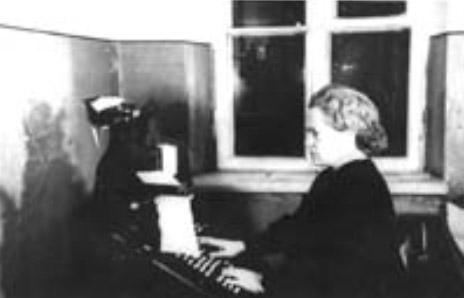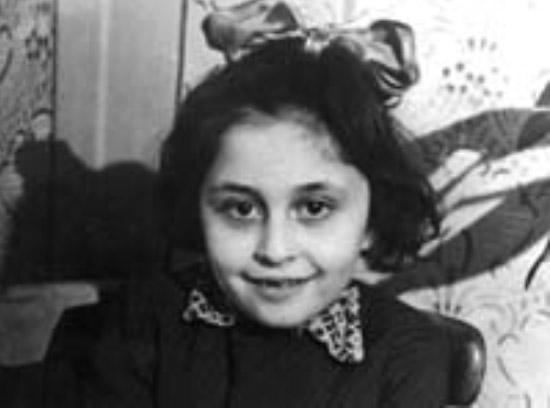Before the war, Julija Vitkauskienė lived in Kaunas, Lithuania with her only son Arėjas-Stasys. Vitkauskienė worked for many years for a printing company and her son was in the graduating class of the local gymnasium. A doctor Max Gilde and his wife, singer Eida Gilde, were neighbors and friends of the Vitkauskienė family.
When the Germans entered Kaunas, the Gildes were confined to the local ghetto and for about a year Julija Vitkauskienė did not see them. In 1942, Vitkauskienė met Dr. Gilde in the street and a short time later, he was assigned as a forced laborer to the printing company where she worked. Vitkauskienė provided Gilde with food and did her best to raise his spirits. In January 1944, Gilde asked her to shelter his only daughter, four-year-old Rina. Vitkauskiene discussed it with her son Arejas-Stasys, who too was in favor of saving the Jewish child and they took Rina into their home. For many months until the end of the occupation, the Vitkauskases moved several times, from one apartment to another in Kaunas, taking their ward with them, in order to avoid arousing the suspicions of their neighbors. In March 1944, Vitkauskienė and her son helped to smuggle other Jewish children out of the ghetto, including nine-year-old Hana Joselevich and her four-year-old brother Pesach, who stayed with them until they were moved to another Lithuanian family, the Lukauskases. Dr. Guilde and his wife Eida did not survive the war and one of their friends asked Vitkauskienė to give them the child so that they could adopt her. Vitkauskienė was persuaded that this would be in Rina’s ultimate best interest and she parted from her with a heavy heart. Many years later, Rina learnt the truth about herself. She found her rescuers again and from then on kept in close touch with them until their deaths.
On April 26, 1966, Yad Vashem recognized Julija Vitkauskienė and her son Arėjas-Stasys Vitkauskas as Righteous Among the Nations.


